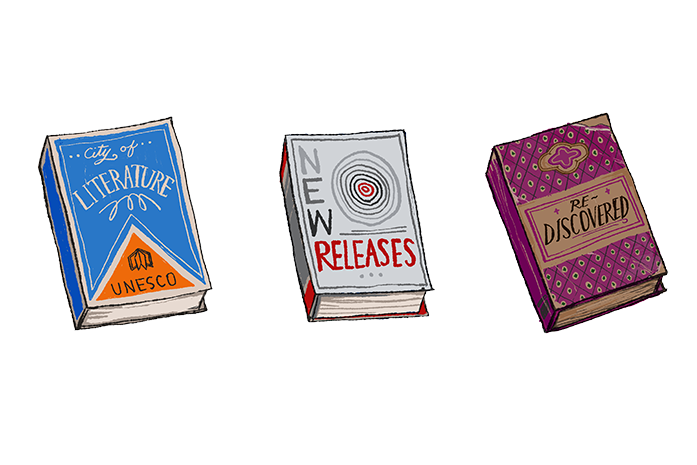CITY OF LITERATURE
The Collected Stories of Lydia Davis by Lydia Davis
Lydia Davis is a genius. Well, at least a recipient of the MacArthur Fellowship, commonly referred to as the MacArthur Genius Grant. She’s also the Magid Center for Undergraduate Writing’s 2016 Visiting Writer in Residence. As such, she will give a reading at 7 p.m. today in Van Allen Lecture Room 2.
Davis has published a novel, but she is more known for her short stories. Her delicate touch has been used to translate French classics and modern works, for which the French government honored her with a Chevalier of the Order of the Arts and Letters.
Proving less is sometimes more, Davis has published works only a sentence or two in length, yet they somehow speak volumes. In the age of Twitter, it’s refreshing to see someone use 140 characters to say something worthwhile.
NEW
All Tomorrow’s Parties, by Rob Spillman
When Rob Spillman sat down to write a memoir, I wonder how he decided where to start. He could have began with his life in West Berlin, where his musician parents played in huge concert halls and the Berlin Wall loomed large. The Wall’s demolition and his subsequent move would have been a fine jumping-off point. Finding out his work would be published in the New York Times Book Review, Vogue, and Rolling Stone would have pulled readers in. Coming in with a bang, he could have started with founding editing for Tin House.
Spillman has plenty to boast about, but that’s not what he does in *All Tomorrow’s Parties*. Instead, he pulls back layers of accomplishments and reveals the struggle, doubt, and failure it took to get him there. As Germans looked for solidity after the Berlin Wall came down, Spillman looked for home.
RE-DISCOVERED
Passing by Nella Larsen
Despite being written in 1929, Passing hits home for fairly recent events. It focuses on racial identities and what individuals owe to their ancestors. In 1929, black women “passing” as white were common, yet still controversial. Irene Redfield could pass, and does on occasion, but married a black man and fiercely opposes her childhood friend Clare Kendry’s decision to marry a white man who has no idea her father was black.
Larsen’s writing is blunt yet complicated. She doesn’t provide answers to the questions she raises, simply leaves them to linger in readers’ minds. The fascination people feel for cultures outside their own dominates the novel, as shown by each woman’s resentment and jealousy toward the others’ choice. It’s a lasting story worth remembering in a world that still hasn’t settled into acceptance of varying ethnic identities.



